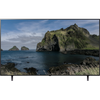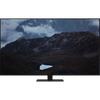A comparison of specs, key information, reviews, and best pricing from top retailers
Last updated -- hours ago | Report incorrect information
What we think

The PerfectRec TV team Learn more
Updated January 10, 2024·
Based on your choices between the LG A1 OLED TV and the Samsung Q80B LCD TV, here's what to consider: If you prioritize watching movies in a darker room and want superior contrast with deep blacks, the LG A1 would be a great option. Its OLED technology excels in these conditions. However, it's generally more expensive and doesn't perform as well in bright rooms due to its lower brightness. For gamers and those using the TV in brighter environments, the Samsung Q80B is a better fit. It offers higher brightness and a better gaming experience due to a higher response time and input lag. Plus, it costs less. However, you would compromise on contrast compared to the LG A1. Give Feedback
this description is based on the product variant with some specs and product variant with some specs. At the time of writing, the variant with some specs cost some dollars and the variant with some specs cost some dollars.
Advantages of the LG A1 (OLED)
- Very good for dark room
- Very good for movies & TV
- Very good for sports
- Very good for news, talk, & other TV
- Very good for cartoons & animation
- Very good for use as monitor
- Very good for upscaling
- Very good viewing angle
- Very good reflections
Advantages of the Samsung Q80B (LCD)
- Good for bright room
- Very good for gaming
Key differences
Picture Quality
8.2
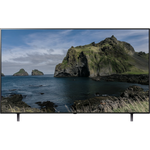
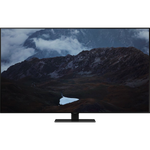
7.1
10.00/10
CONTRAST
5.33/10
7.1/10
COLOR VOLUME SCORE
7.5/10
WOLED
PANEL TYPE
LED FALD
WBC
PANEL SUB-TYPE
IPS
The LG A1 (OLED) has very good picture quality, while the Samsung Q80B (LCD) has good picture quality.
Movies & TV
8.9


6.4
10.00/10
CONTRAST
5.33/10
10.0/10
BLACK UNIFORMITY
5.2/10
8.0/10
UPSCALING
7.5/10
Yes
HDR10 SUPPORT
Yes
No
HDR10+ SUPPORT
Yes
Yes
DOLBY VISION SUPPORT
No
The LG A1 (OLED) is very good for movies & TV, while the Samsung Q80B (LCD) is only fair.
The LG A1's superior contrast ratio, perfect black uniformity, and reliable viewing angles provide a richer, more immersive experience for movies and cinematic content than the Samsung Q80B, which, although having good contrast and black uniformity, falls short in these critical areas for movie watching.
Sports
8.0


6.8
8.0/10
MOTION PROCESSING
8.0/10
60Hz
REFRESH RATE
120Hz
10.0/10
INPUT LAG SCORE
10.0/10
8.0/10
UPSCALING
7.5/10
6.3/10
SDR BRIGHTNESS SCORE
8.8/10
Yes
HLG SUPPORT
Yes
The LG A1 (OLED) is very good for sports, while the Samsung Q80B (LCD) is only fair.
The LG A1 excels in sports viewing because it has an OLED screen that delivers faster response times, which means less motion blur during fast-paced scenes and better viewing angles, ensuring the picture remains accurate from different seating positions. The Samsung Q80B, while good for brightly lit rooms due to its stronger reflection handling, can exhibit more motion blur due to a slower response time and might show more color and brightness variation when viewed from the side, impacting the sports viewing experience for larger groups or wide living areas.
Gaming
7.0


8.2
9.0/10
RESPONSE TIME SCORE
8.1/10
10.0/10
INPUT LAG SCORE
10.0/10
8.0/10
MOTION PROCESSING
8.0/10
100.0/100
GAMING LOCAL DIMMING
60.0/100
6.3/10
GAME HDR BRIGHTNESS SCORE
8.0/10
The Samsung Q80B (LCD) is very good for gaming, while the LG A1 (OLED) is good.
The LG A1 has an excellent response time and the best input lag, making it highly responsive for gaming; however, it is limited to a 60Hz refresh rate. The Samsung Q80B, on the other hand, has a very good response time and also the best input lag, but stands out with its higher 120Hz refresh rate, which can provide a smoother gaming experience, especially for fast-paced games.
News, Talk, & Other TV
8.4


7.8
6.3/10
SDR BRIGHTNESS SCORE
8.8/10
8.0/10
UPSCALING
7.5/10
The LG A1 (OLED) is very good for news, talk, & other TV, while the Samsung Q80B (LCD) is good.
The LG A1's OLED panel delivers perfect blacks thanks to its 100/100 contrast ratio, and its scaling of lower-resolution content is excellent, making TV programs look sharp. The Samsung Q80B, on the other hand, shines with LCD's superior SDR brightness, making it a better choice for well-lit rooms, although with a lower contrast ratio due to its different panel technology.
Bright Room
6.6


7.4
8.8/10
VIEWING ANGLE
7.4/10
6.3/10
SDR BRIGHTNESS SCORE
8.8/10
6.1/10
HDR BRIGHTNESS SCORE
7.7/10
8.8/10
REFLECTIONS SCORE
6.0/10
The Samsung Q80B (LCD) is good for bright room, while the LG A1 (OLED) is only fair.
The LG A1 has an OLED screen with excellent contrast and very good reflection handling, but its SDR and HDR brightness are only fair, which makes it less suitable for bright rooms. On the other hand, the Samsung Q80B features an LCD screen which delivers very good SDR and good HDR brightness, along with fair reflection handling, improving its performance in bright conditions despite having lower contrast.
Cost
$1,100


$998
$400
$600
$800
$1,000
$1,200
$1,400
$1,600
$1,800
The LG A1 (OLED) has a price of $1,100 and the Samsung Q80B (LCD) costs $998.
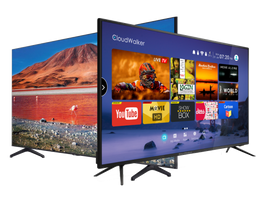
Let Us Help Find Your Perfect TV
Find your new TV
Key similarities
Cartoons & Animation
8.0


7.6
8.0/10
COLOR GAMUT SCORE
7.3/10
7.1/10
COLOR VOLUME SCORE
7.5/10
6.3/10
SDR BRIGHTNESS SCORE
8.8/10
7.1/10
COLORS OUT OF THE BOX SCORE
7.8/10
9.2/10
GRAY UNIFORMITY
6.4/10
Although they have very similar scores, PerfectRec considers LG A1 (OLED) to be very good for cartoons & animation, while the Samsung Q80B (LCD) is good.
The LG A1 OLED TV stands out for animation with vivid and accurate colors right out of the box, as well as a wide color gamut that makes the hues pop, crucial for animated content. The Samsung Q80B LCD performs well too, with good color performance, but it doesn't quite match the LG A1 in terms of the richness of colors and deep contrasts inherent to OLED technology.
Give feedback
We’re constantly working to improve.
How the LG A1 (OLED) and the Samsung Q80B (LCD) compare to other TVs
Spec Comparison
| LG A1 (OLED) | Samsung Q80B (LCD) |
GENERAL | |||
|---|---|---|---|
| Price | |||
$1,100 | $998 | ||
Brand | |||
Brand | LG | Samsung | |
Release Date | |||
Release Date | March 3, 2021 | April 3, 2022 | |
Full name | |||
Full name | OLED65A1 | QN65Q80B | |
Screen Size | |||
Screen Size | 65" | 65" | |
Screen Resolution | |||
Screen Resolution | 4K | 4K | |
TV FEATURES | |||
|---|---|---|---|
Operating System | |||
Operating System | webOS | Tizen | |
Sound Quality Score | |||
Sound Quality Score | 6.6/10 | 8.6/10 | |
NextGen Ready | |||
NextGen Ready | No | No | |
HDMI Ports | |||
HDMI Ports | 3 | 4 | |
Coax Ports | |||
Coax Ports | 1 | 1 | |
DISPLAY QUALITY SCORES | |||
|---|---|---|---|
Picture Quality Score | |||
Picture Quality Score | 8.3/10 | 7.1/10 | |
Bright Room Score | |||
Bright Room Score | 6.7/10 | 7.5/10 | |
Gaming Score | |||
Gaming Score | 7/10 | 8.3/10 | |
Movies & TV Score | |||
Movies & TV Score | 8.9/10 | 6.5/10 | |
Sports Score | |||
Sports Score | 8/10 | 6.9/10 | |
PHYSICAL | |||
|---|---|---|---|
Dimensions w/o Stand (H x W x D) | |||
Dimensions w/o Stand (H x W x D) | 32.7" x 57" x 1.8" | 32.7" x 56.9" x 2.2" | |
Dimensions with Stand (H x W) | |||
Dimensions with Stand (H x W) | 35.1" x 57" | 35.7" x 56.9" | |
Weight without Stand | |||
Weight without Stand | 52.2 lbs | 53.1 lbs | |
VESA Mount | |||
VESA Mount | 300 x 200 | 400 x 300 | |
DISPLAY | |||
|---|---|---|---|
Color Depth | |||
Color Depth | 10 bit | 10 bit | |
Black Frame Insertion | |||
Black Frame Insertion | No | Yes | |
Auto Low Latency Mode | |||
Auto Low Latency Mode | Yes | Yes | |
Contrast | |||
Contrast | 10/10 | 5.3/10 | |
Local Dimming | |||
Local Dimming | 10/10 | 5.7/10 | |
SOUND | |||
|---|---|---|---|
Speaker Setup | |||
Speaker Setup | 2.0 | 2.2.2 | |
Speaker Power | |||
Speaker Power | 20 W | 60 W | |
Dolby Atmos | |||
Dolby Atmos | Yes | Bypass only | |
DTS:X | |||
DTS:X | No | No | |
Shopping
Samsung Q80B (LCD)
See more
Dig into reviews and images
Tom's guide
Matthew Murray | February 2023
"For most people its picture, sound, and price make it a midrange TV worth considering. HDR brightness was generally exceptional. Its viewing angles are shockingly good, among the very best we’ve seen recently from any non-OLED TV. For gamers input lag isn’t too shabby."
Get a great deal on the LG A1 (OLED) or the Samsung Q80B (LCD)
About LG
LG, a prominent TV brand from Korea, has played a significant role in popularizing OLED TVs. OLED technology is hailed as the future of TV technology. Their TVs employ WebOS, a proprietary smart TV software that not only offers seamless functionality but also includes gaming-specific features, earning praise from players worldwide. Often regarded as the gateway to unparalleled viewing experiences, LG's mid-range OLEDs come highly recommended, making them a worthwhile investment for those willing to stretch their budget for superior quality.
About Samsung
Samsung, a South Korean electronics manufacturer, holds the title of being the largest global TV vendor in terms of units sold. They offer a diverse lineup of TV products that cater to various budget ranges. A notable achievement in recent years is the development of Quantum Dots, a technology that enhances color reproduction, resulting in richer and more vibrant hues. Samsung TVs are well-regarded for their high manufacturing quality and user-friendly software, making them an excellent choice for consumers seeking an intuitive viewing experience.
Give feedback
We're constantly perfecting our model
TV guides you might be interested in
More comparisons for you
FAQs
FAQs about TVs
Why trust us
This information was produced and vetted by the PerfectRec TVs team. We are a product research and recommendation organization that meticulously reviews and evaluates the latest TV information and makes it digestible for you.
By the numbers
385
TVs evaluated
33,110
TVs stats compiled
21
Proprietary TVs ratings developed
122,730
Recommendations made
18,410
Consumer hours saved
About the TV team
Joe Golden, Ph.D
CEO and TVs Editor
Joe is an entrepreneur and lifelong electronics enthusiast with a Ph.D in Economics from the University of Michigan.
Jason Lew
Staff Expert & Software Engineer
Jason is a staff expert and software engineer that has been making laptop recommendations for 7 years and moderates one of the largest laptop subreddits.
Chandradeep Chowdhury
Staff Expert & Software Engineer
Chandradeep is a staff expert and software engineer and expert in televisions and monitors. He’s been making monitor recommendations for ten years.
Jaime Roldán
TVs Expert
Jaime is a Colombia-based TV expert. He is an electronics engineer with 8 years of experience in the telecom sector and has been making TV recommendations for 12 years.
